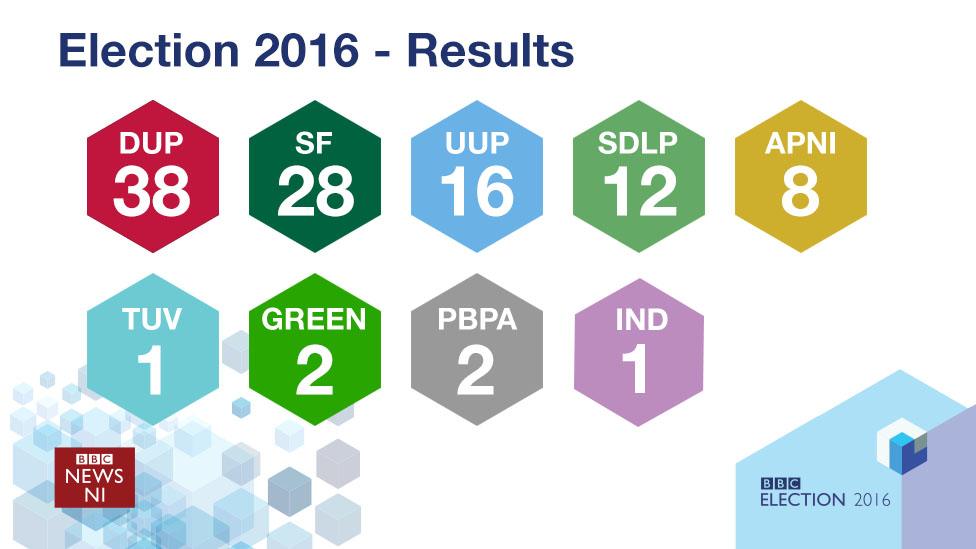NI Assembly election: Disrupting the status quo
- Published
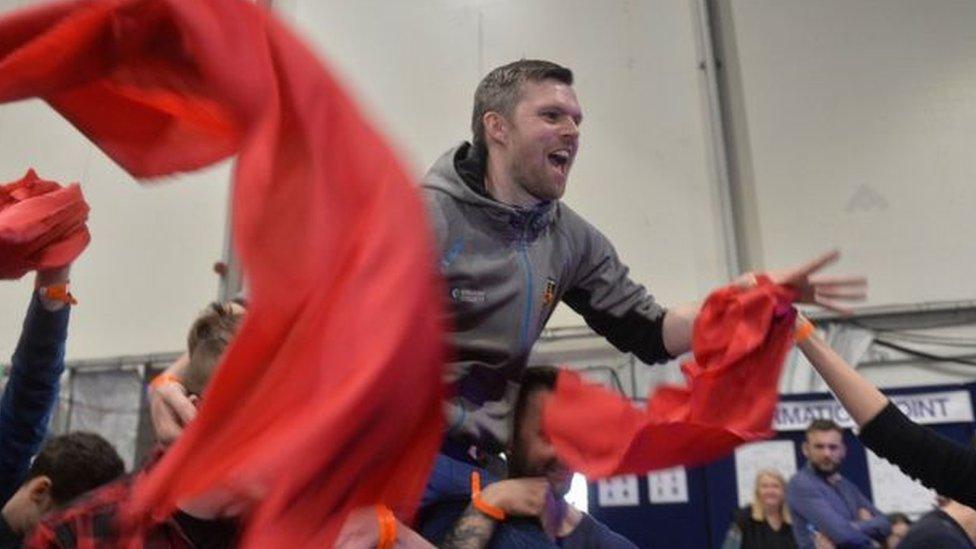
People Before Profit's Gerry Carroll topped the poll in West Belfast
It is easy to look at the results of this election as simply retaining the status quo at Stormont and in many ways that is true.
The Democratic Unionist Party and Sinn Féin are still the major political powers at the Assembly.
But this vote is likely to lead to new challenges and challengers for the big two to contend with at Parliament Buildings.
The People Before Profit Alliance will be a new anti-austerity presence in the chamber having eaten away at some of Sinn Féin's vote in Foyle and the party's traditional heartland of west Belfast.
For a long time PBP's Eamonn McCann has been a commentator on the outside shouting in.
The 73-year-old's voice will now echo around the Assembly and he certainly knows how to make it heard.
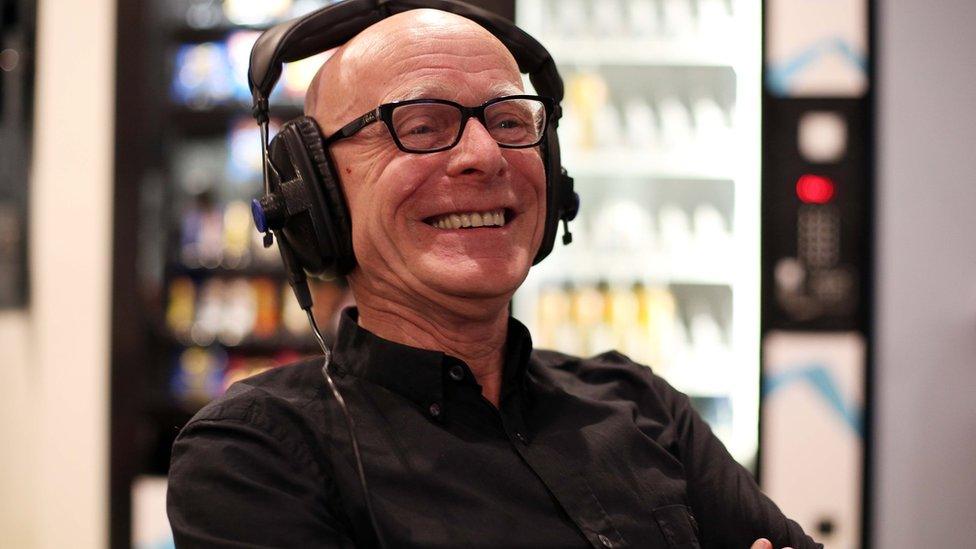
A jubilant Eamonn McCann chats to BBC Radio Ulster after his election to the Foyle constituency
Have no doubt, both he and Gerry Carroll will want to make their mark and perhaps even a little trouble now they are inside Stormont.
While they keep watch from the left-wing, it will once again be Jim Allister who acts as scrutiniser from the right.
NI Assembly election: The full results
Anti-austerity party picks up seats
Pictures from the counts across Northern Ireland
The leader of the Traditional Unionist Voice was often a thorn in the side of both the DUP and Sinn Féin in the last Assembly.
No one expects that to change. The Green Party will also have an increased say with a second MLA joining the benches.
But will there be an even bigger opposition?
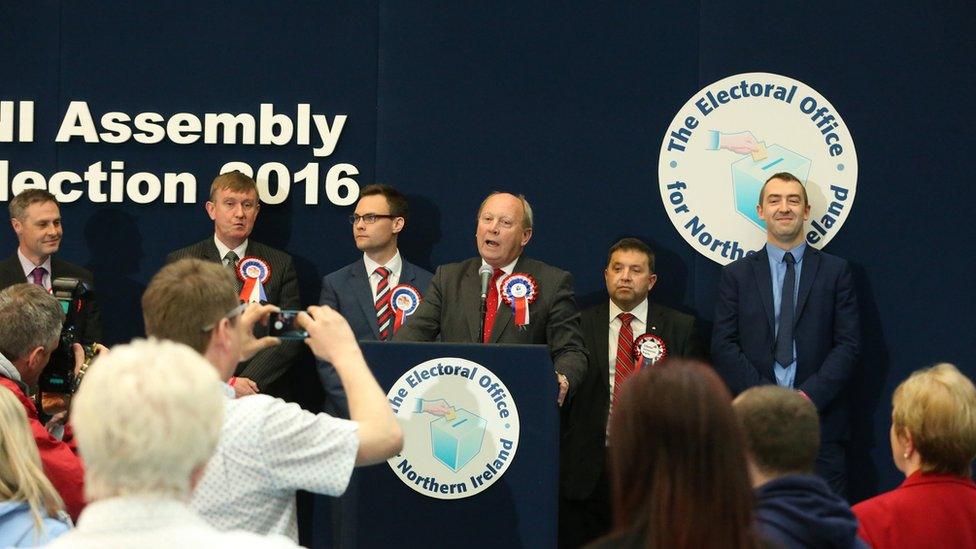
The TUV leader Jim Allister topped the poll in North Antrim
That is a question for some of the parties who are entitled to be in the power-sharing coalition.
They have been given two weeks to agree a programme for government.
'Genuine alternative'
However both the Ulster Unionists and the SDLP have indicated that if they are not happy with the outcome of those talks they could choose to go into opposition instead of government.
They have openly said that in recent years despite being part of the Executive there were occasions when they were presented with decisions by the DUP and Sinn Féin rather than being part of them.
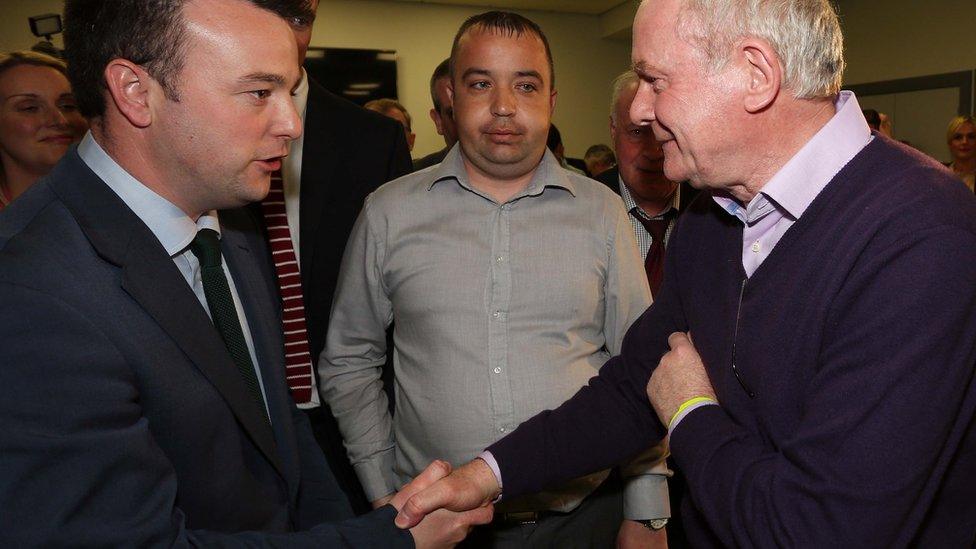
SDLP leader Colum Eastwood and Sinn Féin's Martin McGuinness were elected to the Foyle constituency
There are frustrated voices within both the Ulster Unionist Party and the Social Democratic and Labour Party who believe that rather than feeling like bit-part players inside government, they could offer a genuine alternative outside it.
And electorally there could be long-term benefits in looking like they are holding people to account.
However all politicians know that power - and specifically the chance to hold government ministries - can be difficult to resist.
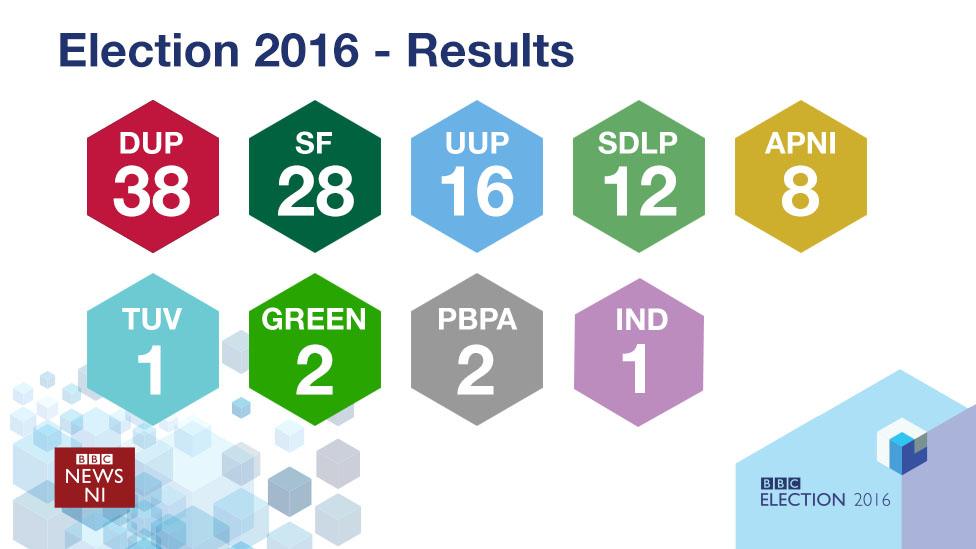
The Democratic Unionist Party remains the biggest party in the Northern Ireland Assembly
Whatever happens it is difficult to see how the core workings of the power-sharing Executive will differ.
The coalition will still depend on a good relationship existing between the DUP and Sinn Féin.
It was only last Autumn when it was feared that the Assembly could collapse after rows between the old rivals over welfare reform and the IRA.
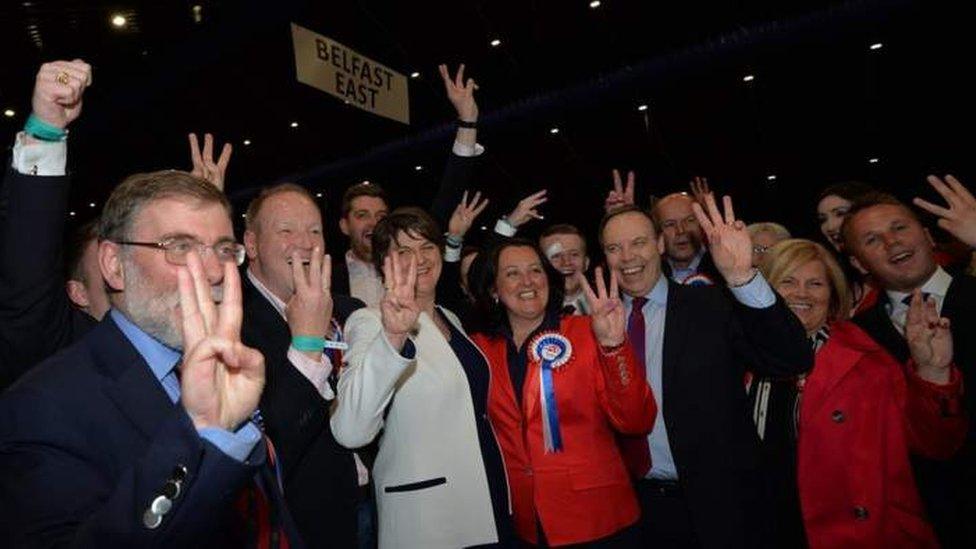
DUP leader Arlene Foster and party colleagues celebrate winning three seats in North Belfast
While these are much more settled times crises have a tendency of sneaking up on Stormont.
The dominance of the Democratic Unionists will carry over from the election into the Assembly.
The scale of their victory means they once again are able to use petitions of concern. They are in effect vetoes which allow them to block any vote their members object to.
That could prevent change in the next Assembly not least on the so-called moral issues, like the proposed introduction of same-sex marriage and the reform of abortion laws.
The cynics will inevitably say: "Same old Stormont, same old rows."
But there will be new feisty voices involved in whatever arguments are had on the hill.
- Published9 May 2016
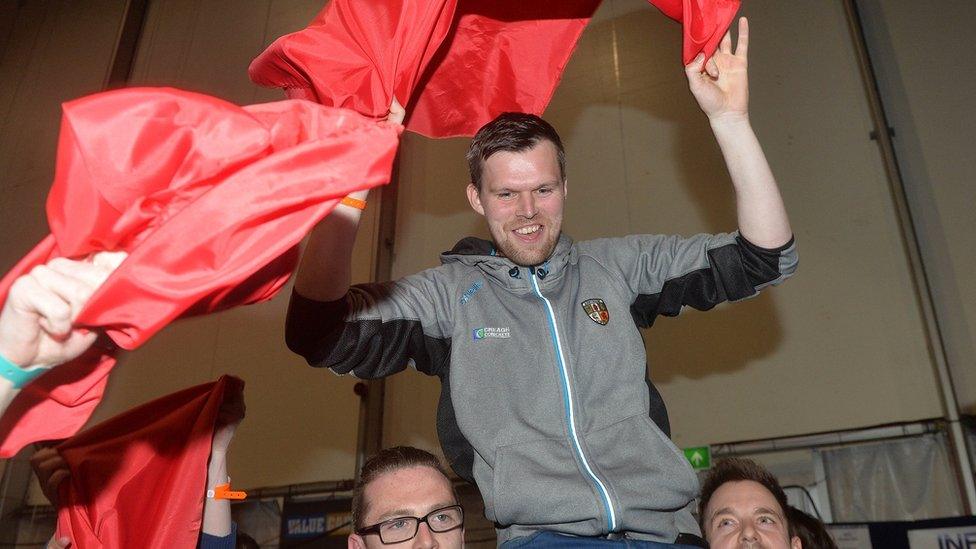
- Published7 May 2016
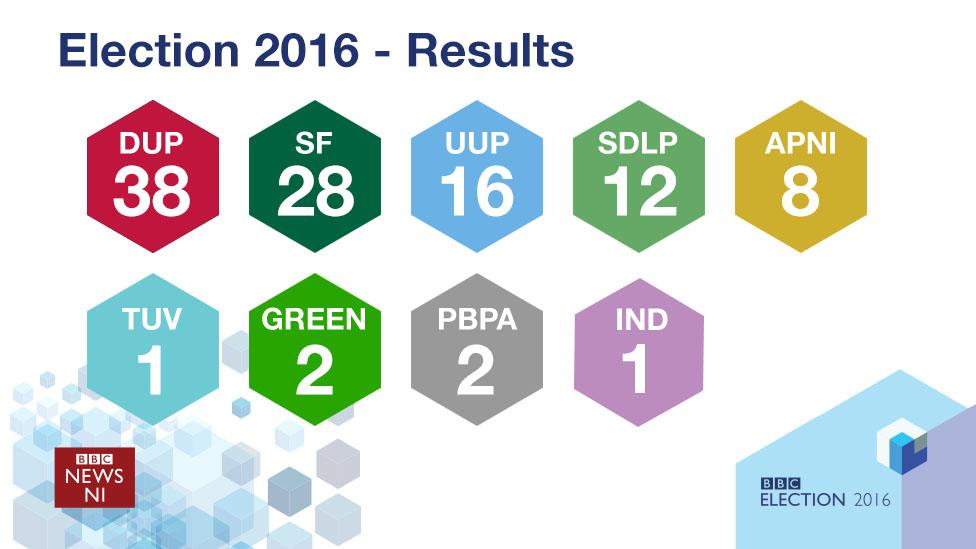
- Published7 May 2016
